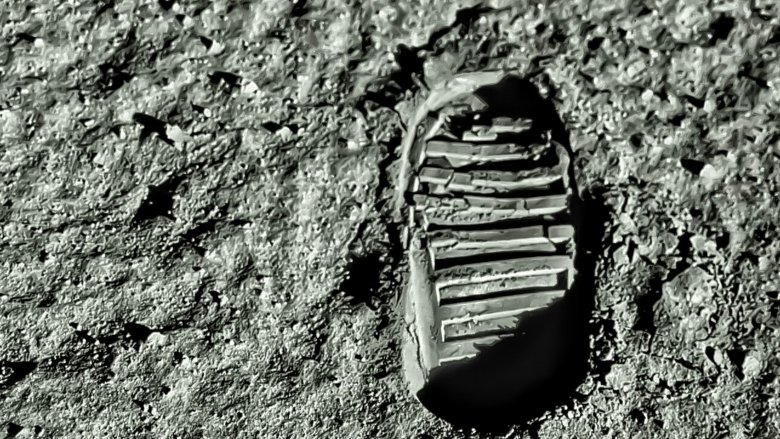Who Owns The Moon?
Humans like to pronounce ownership of things. From the little kid aggressively informing his siblings that the toy box and all its contents are for his sole and exclusive enjoyment, to entire nations greedily eyeing Antarctica's vast mineral reserves — we're an unusually grabby species of primate. Little wonder then that at certain points in our history, would-be conquerors have looked up at the luminous orb in the night sky and said "gimme!" But is it possible to own the moon? And if so, who does?
Let's start with the loopiest option. A used car salesman named Dennis Hope may, technically speaking, own the moon in its entirety. This (marginally ninkompoopish) notion all begins with a 1967 legal document known as the Outer Space Treaty. This pact, which has now been ratified by over one hundred nations, aims to codify how the human race can legitimately exploit celestial bodies. The treaty states that no nation can claim sovereignty over an object in space. Astutely realizing he wasn't a nation, our man Dennis Hope saw an opportunity. He sent a polite letter to the UN dutifully informing them that he hereby claimed ownership of the entire Solar System (modestly excluding Earth, which he acknowledged had already been claimed). Hope set up a tidy little side hustle selling deeds to plots on the moon and our solar system's planets. According to National Geographic, as of 2009 Hope was selling off twenty acres of moon land for the rock-bottom, bargain basement price of around twenty-five bucks. Shockingly, the UN has dismissed Hope's claim as absurd.
While Hope may be chasing rainbows, his claims do reveal a serious point. The 1967 treaty is hopelessly outmoded. According to NASA, some commercial companies may seek to exploit the treaty's ambiguity to their advantage by claiming commercial ownership of the moon and other celestial bodies. This wiggle room is arguably compounded by the 2015 US Commercial Space Launch Competitiveness Act. As Space.com explains, this legislation allows American companies to sell materials extracted through off-Earth mining. While the 2015 legislation doesn't set a revised legal framework for private or public ownership of the moon, it definitely incentivizes companies to test their boundaries.
Used car salesman flexes and legal jostling aside, there's a simple and stark answer to the question of who owns the moon: despite all our crazy and ruthless space exploits, we don't know yet. The human race is still deciding who, if anyone, should be allowed to lay claim to the title of Star-Lord (or more accurately, Moon-Lord), not to mention the valuable cosmic loot boxes that come with it. But the answer, whatever it turns out to be, will certainly have a profound effect on our future.
